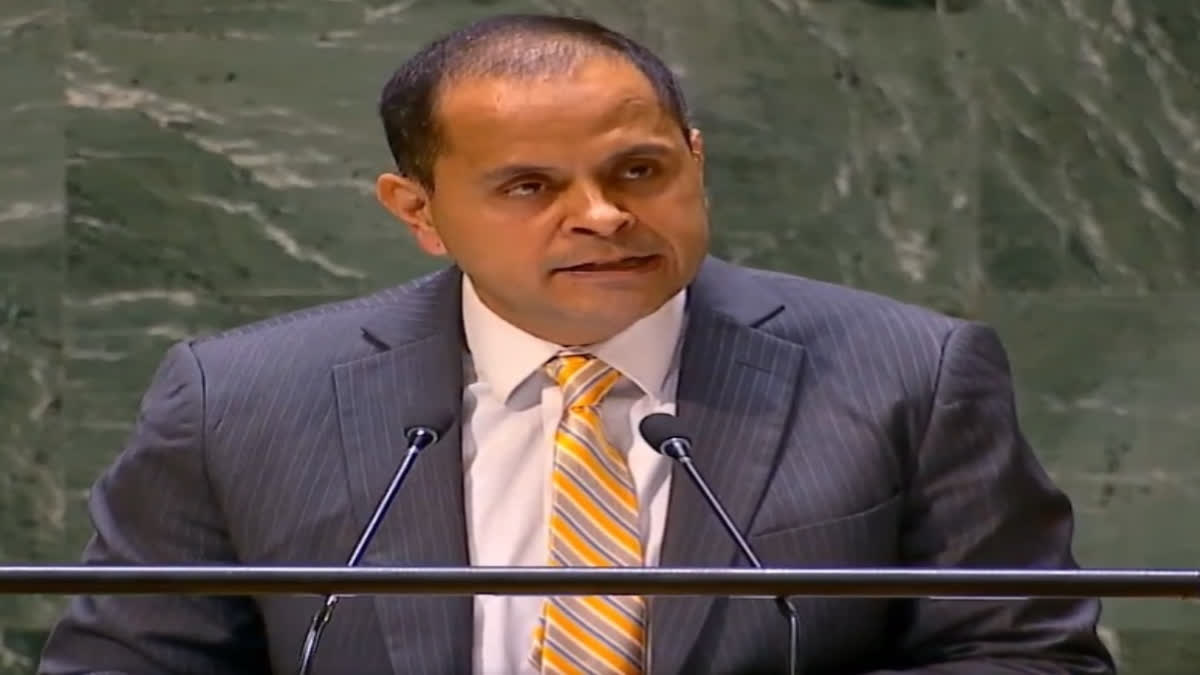United Nations: The UN apparatus, especially the Security Council, is crumbling under the weight of 21st-century geopolitical realities, India has said, underlining that the General Assembly should take the lead in restoring the centrality of the United Nations to resolve transnational issues through multilateralism.
India has consistently advocated the view that the General Assembly can be revitalized only when its position as the chief deliberative, policy-making and representative organ of the United Nations is respected both in letter and in spirit, Counsellor in India's Permanent Mission to the UN Pratik Mathur said here Tuesday.
Addressing the UN General Assembly plenary meeting on Revitalisation of the Work of the General Assembly, Mathur said: We must admit that some of the blame lies with the General Assembly and its member states for having allowed its relevance to be diluted despite being the collective voice of all nations. He noted that there is a "growing perception" that the General Assembly has gradually lost touch with its foundational responsibilities and has become overwhelmed with processes.
Moreover, the attempts to discuss thematic issues in the Security Council have also undermined the role and authority of the General Assembly, he said. India believes that multilateralism, rebalancing, fair globalization and reformed multilateralism cannot be kept in abeyance for long, Mathur said. Nevertheless, as we speak, we see the UN apparatus, especially the Security Council crumbling under the weight of 21st century geopolitical realities, which consequently has turned some of the tide towards the General Assembly, giving us more facetime and traction, where the voice of the Global South is a formidable force unlike what is the case in the Security Council.
Mathur asserted that the General Assembly should take the lead in setting the global agenda and restoring the centrality of the United Nations in formulating multilateral approaches to resolving transnational issues. He emphasized that in the backdrop of the prevailing global scenario, the calls for reformed multilateralism enjoy considerable support amongst UN members.
It does so because of the widespread recognition that the current architecture is anachronistic and indeed ineffective. It is also perceived as deeply unfair, denying entire continents and regions a voice in a forum that deliberates their future, he said. India has consistently called out the lack of representation of Africa in the Council's permanent membership. The UN Security Council is composed of five permanent members China, France, Russia, the UK, and the US and 10 elected non-permanent members who serve two-year terms.
